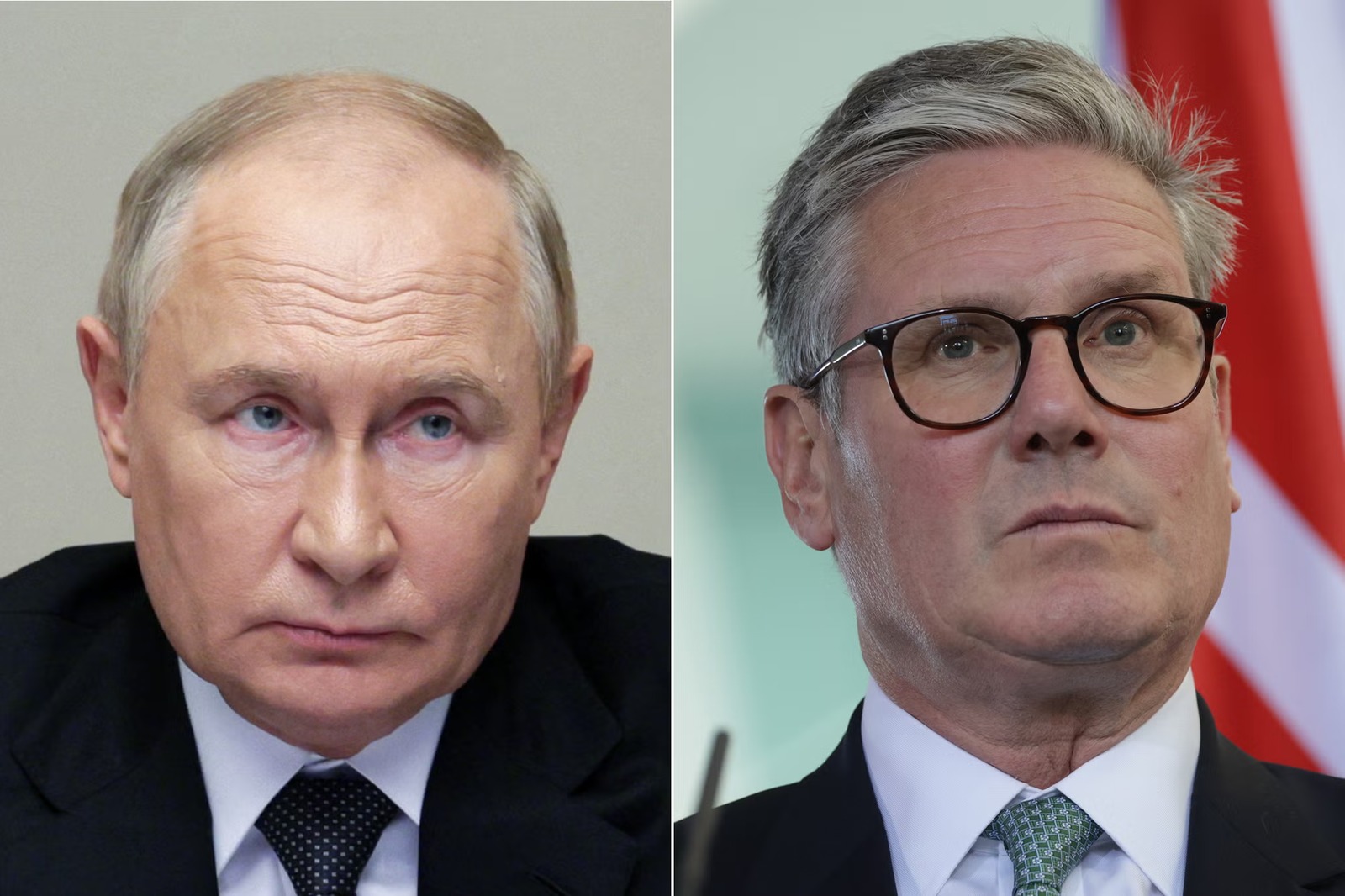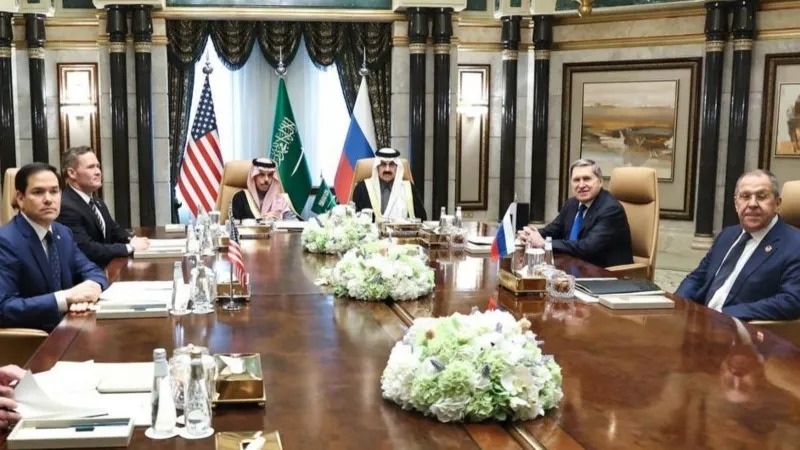UK premier Keir Starmer said Saturday Russian President Vladimir Putin would “sooner or later” have to “come to the table” as he opened a virtual summit to drum up support for a coalition willing to protect any eventual ceasefire in Ukraine.
The British prime minister told some 25 fellow leaders as they joined a virtual call hosted by Downing Street that they should focus on how to strengthen Ukraine, protect any ceasefire and keep up the pressure on Moscow.
While Ukraine had shown it was the “party of peace” by agreeing to a 30-day unconditional ceasefire, “Putin is the one trying to delay,” he said.
“If Putin is serious about peace, I think it’s very simple, he has to stop his barbaric attacks on Ukraine and agree to a ceasefire, and the world is watching,” he added.
Overnight fighting continued in the relentless three-year war, with Russia saying it had taken two more villages in its Kursk border region where it has launched an offensive to wrest back seized territory.
As moves have gathered pace for a ceasefire, Moscow has pushed this week to retake a large part of the land that Ukraine originally captured in western Kursk.
The Russian defense ministry said troops took control over the villages of Zaoleshenka and Rubanshchina — north and west of the town of Sudzha, the main town that Moscow reclaimed this week.
Kyiv meanwhile said its air force had overnight downed 130 Iranian-made Russian-launched Shahid drones over 14 regions of the country.
Putin has called on embattled Ukrainian troops in Kursk to “surrender”, while his US counterpart Donald Trump urged the Kremlin to spare their lives.
“We can’t allow President Putin to play games with President Trump’s deal,” Starmer said in comments released by Downing Street late Friday, ahead of Saturday’s call.
“The Kremlin’s complete disregard for President Trump’s ceasefire proposal only serves to demonstrate that Putin is not serious about peace.”
Starmer and French President Emmanuel Macron have been leading efforts to assemble a so-called “coalition of the willing” ever since Trump opened direct negotiations with Moscow last month.
They say the group is necessary — along with US support — to provide Ukraine with security guarantees by deterring Putin from violating any ceasefire.
Ukraine’s President Volodymyr Zelensky, who was on Saturday’s call, said on Friday he had discussed “technical aspects” of how the ceasefire could be implemented with Macron.
“Our teams continue to work on clear security guarantees, and they will be ready soon,” Zelensky said on social media platform X.
Starmer and Macron have said they are willing to put British and French troops on the ground in Ukraine but it is not clear if other countries are keen on doing the same.
– ‘Stop the violence’ –
Macron called on Russia late Friday to accept the proposal for a ceasefire, and stop making statements aimed at “delaying the process”.
The French president also demanded that Moscow stop its “acts of violence” in Ukraine.
Germany on Friday likewise criticised Putin’s response to the US-proposed ceasefire in Ukraine as “at best a delaying tactic”.
US Secretary of State Marco Rubio said Friday he was “cautiously optimistic” about reaching a truce, but acknowledged there was “a lot of work that remains to be done”.
Starmer has said he welcomes any offer of support for the coalition, raising the prospect that some countries could contribute logistics or surveillance.
“The call is expected to delve further into how countries plan to contribute to the coalition of the willing, ahead of a military planning session being held next week,” the UK government said.
It added that Starmer will say that countries “need to ratchet up economic pressure on Russia, to force Putin into negotiations, in the short term”.
“And be prepared to support a just and enduring peace in Ukraine over the long term and continue to ramp up our military support to Ukraine to defend themselves against increasing Russian attacks.”
British Commonwealth partners Canada, Australia and New Zealand have been involved in early talks and are due to dial in to the summit.
NATO chief Mark Rutte and European Union chiefs Ursula von der Leyen and Antonio Costa are also expected to take part, along with the leaders of Germany, Spain, Portugal, Latvia, Romania, Turkey and the Czech Republic among others.

